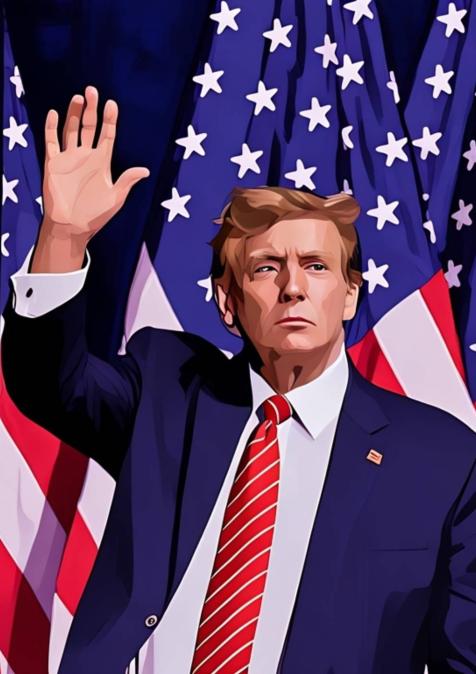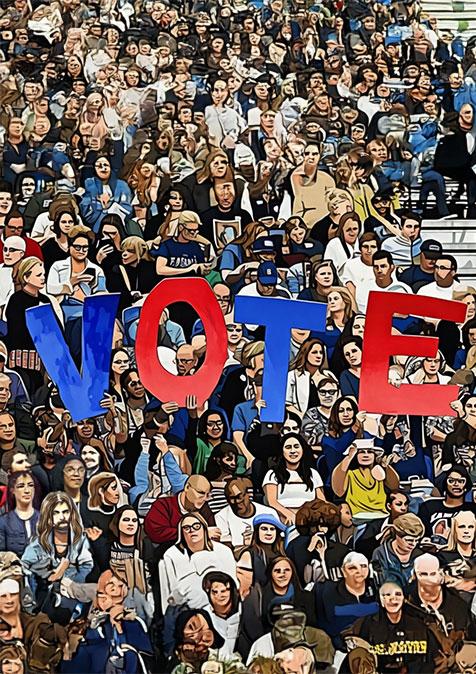Publications /
Opinion
Bank robbers are now and then caught because banks, insurance companies, or robbed personalities promise rewards for the arrest of criminals. In the past, Hollywood took the lead in dreaming up such scenarios. But in early August, the U.S. State Department offered a $10 million reward for information leading “to the identification or location of any person, who works with or for a foreign government for the purpose of interfering with U.S. elections through certain illegal cyber activities”.
Washington’s intelligence services are certain that foreign forces, presumably located in St. Petersburg, Tehran, Beijing, or Pyongyang, are once again preparing mischief in the electoral process. The troll armies and Putin bots are ready to confuse American society even further, disseminating disinformation and propaganda via Facebook, Twitter, YouTube, and spreading fake news, rumors, exaggerations, and inventions. “Putin is presumably deciding now how far to go in interfering in the 2020 election”, declared David Shimer, U.S. historian and author of Rigged: America, Russia and One Hundred Years of Covert Electoral Interference, a study of Russian and American efforts to influence elections around the world.
As November draws near, “foreign interference is already present in this year’s elections,” according to The Verge (August 5). U.S. tech giant Microsoft informed the campaign of Joe Biden, according to Foreign Policy (September 11) that it “may have been the target of a suspected hacking attempt by Russian backed state actors, demonstrating Moscow’s continued efforts to interfere in and influence U.S. elections. Hackers reportedly targeted staffers of the prominent campaign strategy and communications firm SKDKnickerbocker, which has worked on the campaign of several past Presidential candidates and is currently taking a lead role in supporting Biden’s run. Sources told the news agency “Reuters” that they had been trying to break into the firm’s networks for the past two months, but they appear to have failed to breach SKDK’s security… The U.S. Treasury Department also sanctioned four people accused of trying to interfere in the elections on behalf of Russia. One is a member of the Ukrainian parliament, while the other three are Russian nationals employed by Russia’s Internet Research Agency, which was heavily involved in Moscow’s influence campaign during the 2016 Presidential elections”.
‘Terrifying Foreign Threat’
In late July, William Evanina, director of the U.S. National Counterintelligence and Security Center, told members of Congress that Moscow was working, as in 2016, to boost the campaign of Donald Trump and undermine that of Joe Biden, the Democrats’ Presidential candidate: “We assess that Russia is using a range of measures to primarily denigrate former Vice President Biden and what it sees as an anti-Russian establishment”. Mr. Evanina confirmed that Russia is using social media and many other tools to inflame social divisions, promote conspiracy theories, and to sow distrust. Classified briefings on the foreign meddling, stated Richard Blumenthal, U.S. Senator from Connecticut, “have been absolutely chilling, and frankly, terrifying in the magnitude of foreign threat to our election security that we face. It really is a break-the-glass moment”. Majority leader Mitch McConnell confirmed the “significant threat” posed by Moscow, but considered it “a serious mistake” to ignore China and Iran.
President Trump himself may be the only person still unconvinced. In his memoir, The Room Where it Happened, Trump’s former National Security Advisor, John Bolton, stated: “Trump remained, as he had been from the beginning, unwilling or unable to admit any Russian meddling because he believed doing so would undercut the legitimacy of his election and the narrative of the ‘witch hunt’ against him”. Historian David Shimer warned that “leaders like Putin push as far as they can without provoking meaningful pushback and in that sense, Trump’s continued passivity towards Russia could embolden Putin to proceed more aggressively”. Unless someone brave or desperate in St. Petersburg or Beijing is tempted by the bounty of $10 million, the 2020 U.S. Presidential election could see manipulation and a historical meltdown, suggesting a failing democracy.
The opinions expressed in this article belong to the author.








